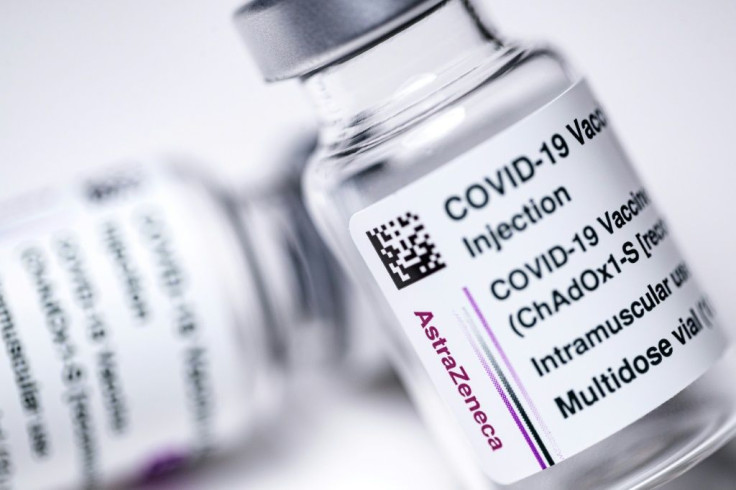AstraZeneca Possible Risks: How Do You Know If You Have A Blood Clot?
With reports that AstraZeneca’s COVID vaccine (AZN) has been linked to cases of blood clots, the shot is no longer being recommended for individuals under the age of 30, government officials have said.
In the U.K. the AstraZeneca shot has been connected to 79 blood clot cases, with 19 patients dying by March 31, Yahoo News reported. While no affirmative link has been found to prove that the vaccine is responsible for the blood clots or the patients’ deaths, U.K. health regulators have opened an investigation and have said that they are closing in on a link, CNBC said.
EU health experts have also said that blood clots are a “very rare” side effect of the AstraZeneca vaccine and have stressed the need to get vaccinated, saying the immunization outweighs the risk for most people, according to Yahoo News.
While the risk of getting a blood clot from the vaccine is thought to be as common as getting murdered in the next month or driving for 250 miles and dying in a car accident on the journey, the BBC said, the majority of the blood clots cases have occurred after the first vaccine dose with only a few happening after the second doses.
The World Health Organization also agrees that the blood clot risk is “very rare,” citing that nearly 200 million people have received the vaccine worldwide.
The difference in the AstraZeneca vaccine compared to the Pfizer and Moderna vaccine is the makeup as the latter are RNA platforms that make the coronavirus’ spike proteins, using infection to enter the cells to launch an immune response, Yahoo News said.
However, the AstraZeneca vaccine is a modified version of the virus that uses genes to produce the coronavirus’ spike protein to induce the immune response, according to the news outlet.
How Do You Know If You Have A Blood Clot?
While getting a blood clot is rare, the symptoms can be life-threatening and should not be ignored.
According to the American Blood Clot Association, a blood clot can form in a major vein in the body. The blood clots from the AstraZeneca vaccine have mostly been reported to have been found near the brain, with other thrombosis events in other parts of the body also reported, MSN said.
Symptoms of a blood clot, according to the association, include:
- Swelling in the affected area.
- Pain and tenderness that feels like cramping or a charley horse or muscle soreness or joint pain.
- Skin discoloration with a common redness or blue or purple tone.
- Skin that is warm to the touch in the affected area.
*In many cases, there are no noticeable symptoms, the American Blood Clot Association said.
Symptoms of a pulmonary embolism, where the blood clot breaks off and travels to the lungs and prevents blood flow, according to the American Blood Clot Association, include:
- Sudden and unexplained shortness of breath
- Sharp chest pain that can worsen when a deep breath is taken
- Dizziness or lightheadedness
- Rapid pulse
- Sweating
- Fever
- Bloody cough
If you experience any of these symptoms and you think you are suffering from a blood clot, seek medical attention immediately.
Shares of AstraZeneca were trading at $49.66 as of 10:32 a.m. EDT, up $1.24 or 2.56%.

© Copyright IBTimes 2025. All rights reserved.





















